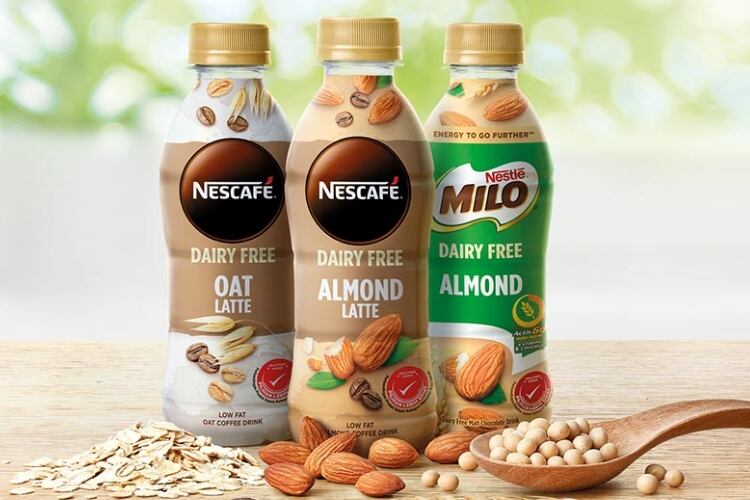Products include a new plant-based version of Milo, starting first in Malaysia. Nestlé Malaysia will also be introducing a range of plant-based Nescafé lattes. Both will appear on shelves this month.
This new version replaces the milk in the original recipe with almond and soy, but the other two core ingredients – malt and cocoa – remain the same.
Each bottle offers 6.5 grams of protein and is also low in sugar, with a combination of vitamins and minerals to support effective energy release.
It follows the launch of a plant-based Milo powder in Australia in 2020.
Mayank Trivedi, head of the dairy strategic business unit at Nestlé, said, "We want to provide consumers with on-trend alternatives in formats they want. That's why we're delighted to launch Milo Dairy Free to support people's lifestyle choices."
The other products being launched by Nestlé Malaysia are plant-based versions of Nescafé oat and almond lattes.
Nestlé has already launched plant-based coffee mixes in Europe, Latin America and Oceania, and most recently launched a range of plant-based Nescafé and Starbucks lattes in Japan.
The Nescafé Dairy Free Almond Latte combines almond and pea, while oat and soy are the main ingredients for the Nescafé Dairy Free Oat Latte. Both are blended with Nescafé coffee and can be served hot or cold.
Nestlé said it is focused on developing a wide variety of dairy alternatives that complement the everyday diet of people. This includes products made from pea, rice, oat, soy, coconut and almonds.
Guglielmo Bonora, head of Nestlé's R&D Center in Singapore, said, "We want to make it easier for people to embrace plant-based alternatives in their diet, while also reducing our carbon footprint across the supply chain."
Nestlé's R&D center in Singapore serves as the regional innovation hub for the development of plant-based dairy alternatives in Asia. The center collaborates with Nestlé's global R&D network of around 300 scientists, engineers, and product developers who are active in the research and development of plant-based products.
According to a recent survey by GlobalData, more than 40% of consumers in the Asia region are shifting to more plant-based diets, with 11% opting for vegetarian and vegan food, and a third moving to a 'flexitarian' diet that is lighter on meat and dairy products.
Nestlé said many consumers cite environmental reasons, as plant-based proteins are produced with significantly lower emissions, land- and water usage.

